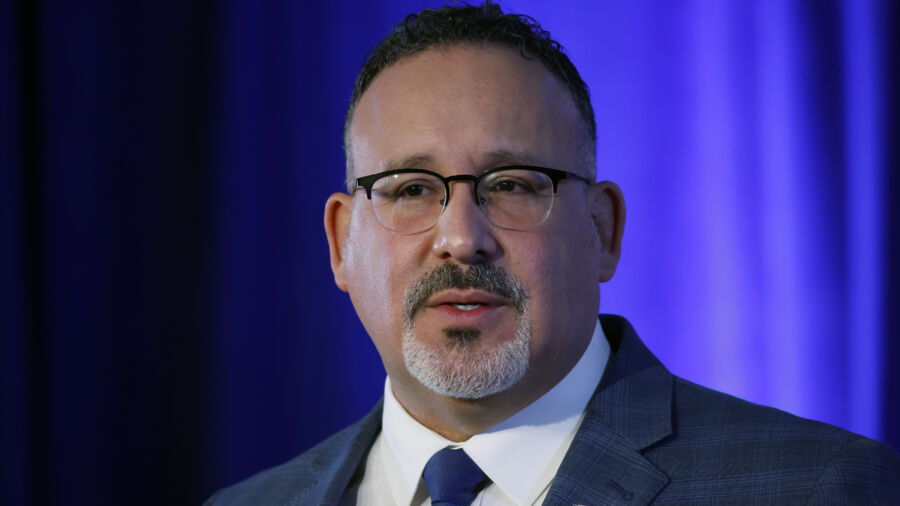In recent years, the United States has seen a troubling rise in cyberattacks that have targeted schools. During the 2022–23 academic year, at least eight K–12 school districts across the country were targeted by “significant cyberattacks,” according to the White House. Four of these attacks resulted in schools being forced to either cancel classes or shut down entirely.
In response to this threat, the White House will host a summit on Monday to explore ways to improve school cybersecurity across the country in the face of rising ransomware assaults.
“Not only have these attacks disrupted school operations but they also have impacted students, their families, teachers, and administrators,” the White House said in a statement. “Sensitive personal information—including, student grades, medical records, documented home issues, behavioral information, and financial information—of students and employees were stolen and publicly disclosed.”
As a result of these attacks, important information regarding school security systems was also leaked online.
First Lady Jill Biden, Education Secretary Miguel Cardona, and Secretary of Homeland Security Alejandro Mayorkas will host the summit for K–12 schools, bringing together school administrators, teachers, and private companies to discuss and explore best practices to protect schools from these cyberattacks.
Recovery after a cyberattack might take anywhere from two to nine months, according to a report from the U.S. Government Accountability Office in 2022. In addition, the monetary damages suffered by school districts as a result of these attacks varied between $50,000 and $1 million.
“It’s crystal clear: we must take cyberattacks on our schools just as seriously as we take physical attacks on critical infrastructure,” Deputy Education Secretary Cindy Marten told reporters during a conference call. “That’s why, as we head back to school, it’s critical that we bring everyone together so we can help ensure that our schools are well equipped with the necessary guidance and also support so that we can raise awareness of this issue.”
The Department of Education has announced several initiatives to improve school cybersecurity. One of these is the establishment of a Government Coordinating Council to facilitate and coordinate activities between government agencies and schools.
In addition, the Federal Communications Commission will launch a pilot program to grant up to $200 million over three years to K–12 schools and libraries to boost cyber security.
Threats to Critical Infrastructure
This year, the White House increased its efforts to strengthen national cyber-security. The Biden administration unveiled a comprehensive plan on July 31 aimed at improving the cyber workforce in the short and long term. The strategy aims to increase the affordability and accessibility of cyber training for all Americans.
These initiatives come as autocratic countries such as China, Russia, Iran, and North Korea aggressively deploy cyber capabilities, jeopardizing U.S. national security and economic prosperity.
According to a recent New York Times article, Chinese malware was identified on crucial U.S. infrastructure. Beijing buried malicious computer code within networks that control power grids, communications systems, and water supplies that feed military bases in the United States and around the world, the report claimed.
The White House has not confirmed these reports, but has stated that it is working “relentlessly” to mitigate cyberthreats.
“The Biden administration is working relentlessly to defend the United States from any disruptions to our critical infrastructure, including by coordinating interagency efforts to protect water systems, pipelines, rail and aviation systems, among others,” National Security Council spokesperson Adam Hodge told The Epoch Times. “The president has also mandated rigorous cybersecurity practices for the first time.”
From The Epoch Times


